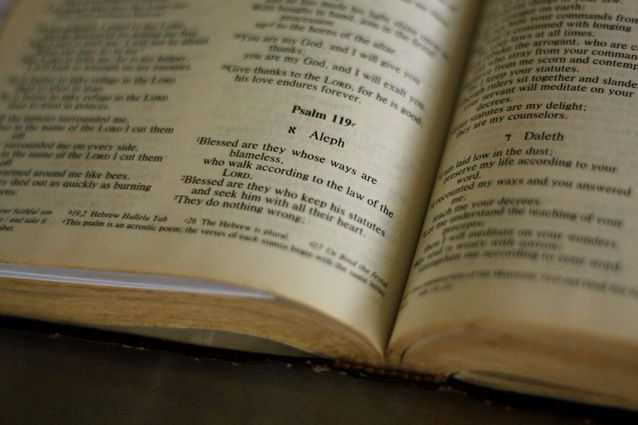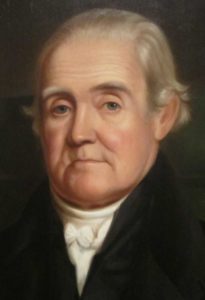Iowa Bill Would Authorize Elective Bible Course in Public Schools

DES MOINES, Iowa — A bill has been introduced in the Iowa legislature that would authorize school districts in the state to create an elective course on the Bible as a social studies class.
“Basically, I want to give students the opportunity to study the Bible from the perspective of its impact on history and culture,” sponsor Rep. Dean Fisher, R- Montour, told the Des Moines Register.
House File 2031 would allow the course to be offered to interested students in high school settings, but would not mandate that districts do so.
“This bill directs the state board of education to adopt rules establishing course standards for elective social studies courses on the Hebrew Scriptures or the New Testament of the Bible,” the bill outlines in part. “The bill authorizes a school district to offer and teach such a course to students in grades 9 through 12 if the district’s school improvement advisory committee recommends and the board of directors of the school district approves, the course.”
It explains that “[t]he purpose of the course must be to provide students with knowledge of biblical content, characters, poetry, and narratives that are prerequisites to understanding contemporary society and culture, and to familiarize students with the contents, history, literary style and structure, and influence of the Hebrew Scriptures or the New Testament of the Bible.”
However, schools would not be permitted to endorse Christianity over other religions, nor would staff be allowed to speak against other religions.
“A course offered under the bill is subject to federal and state guidelines regarding religious neutrality, and shall recognize and accommodate the diverse religious views, traditions, and the perspectives of students enrolled in the school district,” it states. “Such a course shall not endorse, favor, promote, or disfavor, or be hostile toward, any particular religion, faith, or non-religious perspective.”
Local group The Family Leader has endorsed the legislation.
“Today, we are raising generations of children ignorant of the origin of core American values that should unite us, such as the historically radical, but biblically inspired ideal that all people have inherent worth and equality and are ‘endowed by their creator with certain unalienable rights,’” said spokesman Drew Zahn. “These foundational and historical American values did not spring from the cornucopia of ‘world religions,’ but specifically from the Judeo-Christian Scriptures.”
The Iowa Interfaith Alliance had told the Des Moines Register that it opposed the legislation because world religions are already included in some social studies classes.
As previously reported, two senators in West Virginia also recently presented a bill authorizing the creation of an elective course on the Bible—legislation that slightly differs from the Iowa proposal in that all districts would be required to offer the optional class.
The first textbook used in the American colonies even before the nation’s founding, “The New England Primer,” was largely focused on the Scriptures, and was stated to be popular in public and private schools alike until approximately the early 1900’s. It used mostly the King James Bible as reference, and spoke much about sin, salvation and proper behavior.
“Save me, O God, from evil all this day long, and let me love and serve Thee forever, for the sake of Jesus Christ, Thy Son,” it read.

Many of the Founders’ children are stated to have learned to read from the primer.
Noah Webster’s famous “Blue Back Speller” also referenced Christianity, including God-centered statements in reading lessons such as “The preacher is to preach the gospel,” “Blasphemy is contemptuous treatment of God,” and “We do not like to see our own sins.” Webster, a schoolmaster, is known as the “father of American education” and strongly advocated teaching children the Scriptures.
123 of the first 126 colleges established in America were founded on Christian principles. Harvard University, named after Pastor John Harvard, held the motto “Truth for Christ and the Church.”
“Let every scholar be plainly instructed and earnestly pressed to consider well the main end of his life and studies is to know God and Jesus Christ, which is eternal life. Therefore, to lay Christ in the bottom as the only foundation of all sound knowledge and learning …” its student manual read.
Princeton’s motto was “Under God’s Power She Flourishes.” The first president of Princeton, Pastor Jonathan Dickinson, said, “Cursed be all learning that is contrary to the cross of Christ.”
Yale also wrote in its requirements in 1745, “All scholars shall live religious, godly and blameless lives according to the rules of God’s word, diligently reading the Scriptures…”







Comments are closed.